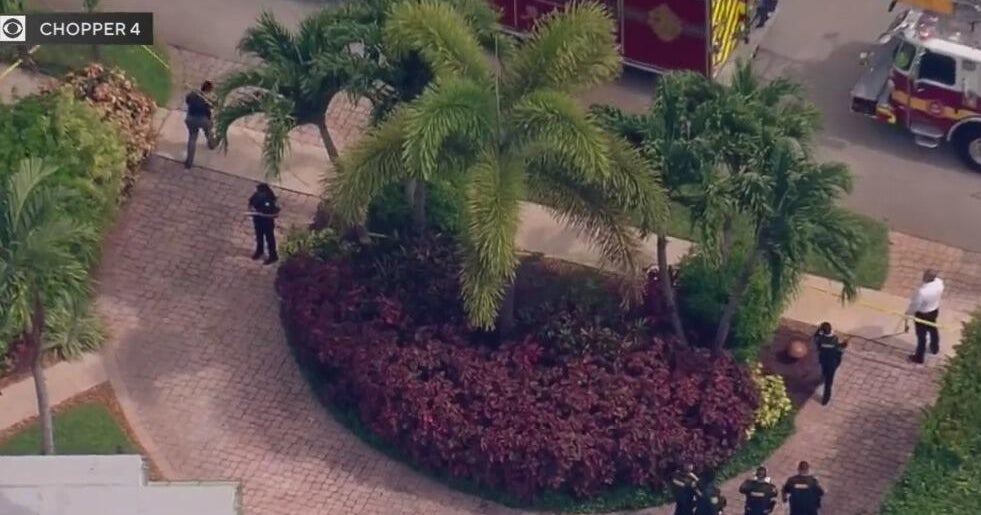Miami (CBSMiami) – Following the Surfside tragedy and the deaths of 98 people, it became clear there needed to be significant changes to state law to improve inspections and make sure critical repairs were done.
And yet the Florida Legislature failed to pass a single reform. Why?
READ MORE: Everglades Holiday Park Finally Brought Up To Date After Nearly $16-Million Expansion Project
To answer that, let’s start by understanding the issue. In Florida, there are 1.5 million condo units with more than 3.5 million people living in them. Sixty percent of those condos are more than 30 years old.
In Miami-Dade and Broward Counties, condos are required to go through what is called a “recertification inspection” after 40 years. (The state’s 65 remaining counties do not require any type of recertification inspection.) The Champlain Towers South had just gone through its recertification inspection a couple of years before the collapse but had failed to address the problems identified in the report.
Another issue that came to light following the collapse is the fact that while the state requires condo associations to collect what it terms “reserve funds” to make critical and expensive repairs during the life of a building, the state also allows condo boards to “waive” collecting those funds.
In the case of Champlain Towers South, in 2020 more than $16 million in repairs were identified but the condo association had less than $1 million in reserves.
As the Legislature convened in January, State Rep. Daniel Perez, a Republican whose district runs from Kendall to Doral, introduced a reform bill in the House, and State Sen. Jennifer Bradley, a Republican from North Florida, sponsored a reform bill in the Senate.
Both bills covered buildings three stories or higher. The Senate bill covered apartment buildings, co-ops and condos. The House bill only covered co-ops and condos.
Both bills required the recertification-style inspections on buildings after 30 years and then every 10 years, unless the building was within three miles of the coast. For coastal buildings – where salt water can be particularly corrosive – the Senate bill required buildings had to be inspected after 20 years and then every seven years after that, while the House bill required coastal buildings to be inspected after 25 years and then every 10 years after that.
Both Bradley and Perez say they could have worked out the minor differences in the rate of inspection fairly easily, but they never got to that point because negotiations broke down over other issues, most notably reserve funds.
“The real concern here is that associations currently have the ability to waive the requirement of reserves because they don’t want to increase association fees or because they don’t have an assessment,” Perez said. “They waive the ability to reserve the funds in order for future maintenance to take place specifically towards structural integrity. We’re talking about the walls of a building. We’re talking about the roof. We’re talking about foundation. We’re talking about important parts of a condominium. It’s being waived. So there is no fund there when it comes time for the repair.”
The House bill took a very hard line that under no circumstances could condo boards ever waive collecting reserve funds.
“You have one of two options,” Perez said. “You have the first option, which is living in fear because the structural integrity of your building is not kept up to par by your association because they’ve been waving reserves, or you have the ability to fund the reserves and the structural integrity of your condominium so you can sleep well at night when you’re put your head on your pillow, knowing that the structural integrity is there and the funds are there going into the future for the maintenance of the condominium.
READ MORE: West Miami-Dade Brush Fire Has Charred 385 Acres
“Those really were the only two options, and I stuck with the latter, which was the more aggressive type. And I don’t regret that decision one bit.”
The Senate bill would allow associations to waive collecting portions of reserves but only if two-thirds of all condo owners voted to do so.
Currently, the decision to waive reserves can be accomplished by just a handful of condo owners in a building. For instance, if a building has 100 condos in it and the condo board is made up of five people, then if three vote to waive the reserves, the money won’t be collected. In addition, the rest of the people in the building don’t even have to be informed of the decision so they may be unaware there is a problem.
The Senate bill would now require every condo owner or resident to be given a copy of the inspection reports, an analysis of costs to make the needed repairs, and then the entire building would have to vote to waive collecting even a portion of the reserves. Under the Senate bill it would need a two-thirds vote – or at least 67 unit owners – to waive collecting the funds.
“In in a perfect world, we would make sure that every condo was fully funded, and every repair was done on track,” Bradley said. “But we are transitioning from a system that is vastly different from that. And if we are not careful, we will have our senior citizens, those on fixed income, those on low income that are unable [to pay a sharp rise in reserves]. We want them to have the flexibility to say, `You know what, we’re not going to reserve for the parking lot, but we want to make sure we reserve for the roof.’ We allow a little bit of flexibility as we transition from our old model to make sure that there isn’t just an undue burden, and we don’t look up in three years and folks are being displaced [because] they have massive special assessments. It’s a balancing act that has to be made. Safety is non-negotiable. But in terms of funding the reserves and making sure that people are armed with the information, they have, the reserve studies, they have the inspections.”
The Miami-Dade Grand Jury issued a report after the Surfside collapse, and it recommended striking the ability of condo associations to be able to waive reserves. But the report went on to say, if that is not possible then it should require approval by 70 percent of the condo owners and only for certain types of repairs.
Bradley said she was willing to find an acceptable number and was also willing to create a list of items that could never be waived. But Perez refused to accept any compromise on his position that reserves could never be waived.
“I have a great working relationship with Sen. Bradley, and we tried very hard to get towards the middle, but we were unsuccessful in doing so,” Perez said. “And quite frankly, I was not going to window dress up a bill just to say that I checked off a box and passed a Surfside package. I went up there with the responsibility that my constituents gave me to make real change. The version that we passed off the House was real change and I stood by that version. Was I willing to negotiate? Absolutely. But I’m not willing to throw everything out the window that would have made us the closest to certainty that we would have ever been to make sure that what happened at Surfside would never happen again. I unfortunately, cannot speak confidently that the Senate version was going to get us any closer to alleviate the problems that we had with condominiums and condominium associations. The House version did.”
When it became clear in the final week of the legislative session that Perez would not come down on his demand, Bradley tried to get the rest of the bill passed – including the sections on inspections across the state and the right of condo owners and county officials to see those reports. But when the Senate passed that portion of the bill and sent it back to the House in the final 48 hours of the regular session, Perez killed it and the House never took a vote.
As a result, nothing was passed, and the laws remain the same. Sixty-five counties have no requirements for inspections on older buildings and condo associations can still waive reserve funds with just a handful of people deciding to do so.
Following the session, both Perez and Bradley told CBS News Miami they were going to continue their talks and see if there could be a solution. If they can reach an agreement, they both said they would be willing to ask the governor and the leaders of the House and the Senate to include it in a special session.
MORE NEWS: Judge OKs $83 Million For Property Loss In Surfside Condo Collapse
If not, they will have to wait until next year.



